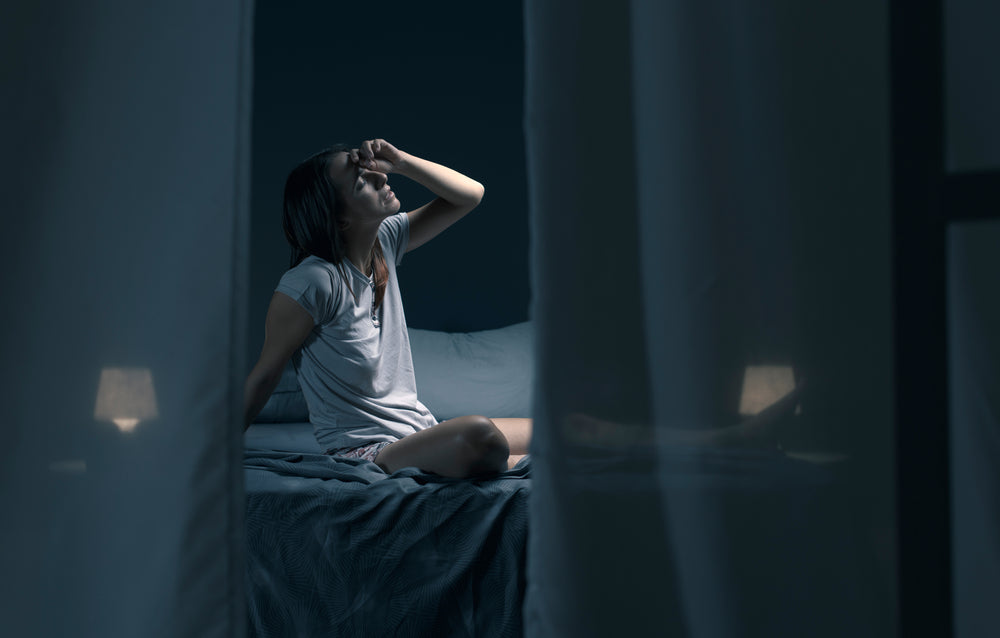Sweating in your sleep is a fairly common phenomenon. Some people sleep with too many clothes on, too many blankets, or sometimes it can even be due to the temperature in the room you’re sleeping in. If you’ve woken up once in a while with some sweat, it’s probably nothing to be concerned about.
However, if you regularly wake up with sweat-covered pajamas or blankets, it could be due in some part to an underlying condition. While there are many medical reasons you could be experiencing night sweats, most of them aren’t too serious. However, some could be problematic--especially if left untreated.
Signs of Obstructive Sleep Apnea (OSA)
Obstructive sleep apnea, or OSA, is a chronic condition where your airways are blocked during sleep, causing you to stop breathing several times over the course of a night. Sleep apnea affects millions of people nationwide and there are a number of factors that could contribute to OSA.
Often, there is something internal that blocks the airways as you sleep. When you sleep, the muscles in the chest and throat relax and can cause obstructions that prevent necessary airflow. This can cause extreme snoring, choking, night sweats, headaches, and excessive dry mouth.
Sleep apnea is a fairly common and, therefore, well-understood condition. But it’s imperative that you not write it off because it’s so common. Untreated OSA could lead to the development of other, more severe medical conditions if not managed correctly. Untreated OSA ultimately prevents you from getting good sleep--the kind of sleep that leads to comprehensive health. Because of this, it can put you at increased risk for conditions like heart attack, heart failure, stroke, Type 2 diabetes, obesity, hypertension, and even cancer.
Symptoms
If you are experiencing chronic night sweats, that could be an indicator of OSA. However, you also need to be aware of other side effects that you may be experiencing in conjunction with your regular night sweats. Common symptoms of OSA include, but are not limited to:
- Nighttime Symptoms
- Loud, persistent snoring
- Night sweats
- Witnessed pauses in breathing (often from a family member or significant other)
- Choking or gasping for air during sleep
- Restless sleep
- Frequent visits to the bathroom
- Daytime Symptoms
- Early morning headaches
- Excessive daytime fatigue or drowsiness
- Poor concentration
- Depression, irritability, or mood swings
- Sleepiness during routine activities (e.g. driving)
If one or more of these symptoms sound like you, then it’s possible you may be living with untreated OSA. Because of the potential long term effects of untreated OSA, it’s imperative to get tested for OSA as soon as possible. Once you’ve undergone a sleep test, you can get your diagnosis and, if needed, begin CPAP or AutoPAP treatments immediately.
Getting Tested
To get your answer there are two routes to go, you either undergo a sleep study with a sleep lab or home sleep test with professionals who will review your results. Both will give you a proper diagnosis and both qualify you for approved treatments. Sleep studies, regardless of their location, are a surefire way to see if you are suffering from an untreated sleep disorder.
In-lab sleep studies can be expensive, uncomfortable, and somewhat unnecessary if you think you may have sleep apnea. For those suffering from other disorders like narcolepsy, insomnia, or restless leg syndrome, an in-lab sleep study can be a necessary step.
Sleep apnea is easy to spot when you do a home sleep study and it’s also fairly common, in-home sleep testing has become a great, recognized option for the diagnosis and treatment of obstructive sleep apnea.
Once you’ve received your diagnosis, you can begin the process of selecting the right OSA treatment for yourself. Once you start sleeping with CPAP or AutoPAP therapy, you’ll notice that you have more energy, a better mood, and experience life with a new set of (well-rested) eyes. If you are concerned about frequent night sweats, be sure to contact ApneaMed and see if you are eligible for an at-home sleep test so you can start getting the great sleep you deserve.

